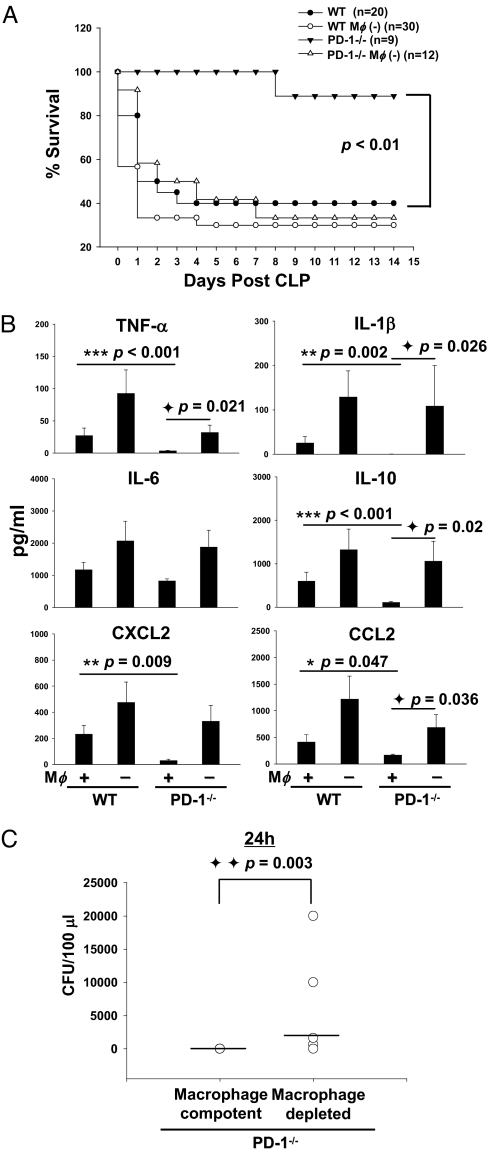Fig. 4.
Macrophage is an important mediator of the protective effects of PD-1 gene deficiency in septic mice. (A) Macrophages are pivotal in maintaining the protective effect of PD-1 gene deficiency in mice from the lethality of sepsis. WT and PD-1−/− mice were treated with clodronate liposomes or PBS (200 μl/mouse, i.p.) 48 hours before being subjected to CLP. The survival rate was followed for 15 days after surgery. Graph represents survival data pooled from two experiments. (B) Peritoneal macrophages are critical for regulating the cytokine response seen in PD-1−/− mice during sepsis. Concentrations of cytokines in plasma (sham, n = 4; CLP, n = 12–16) were measured by ELISA. * P < 0.05, ** P < 0.01, and *** P < 0.001, CLP-treated PD-1−/− mice vs. CLP-treated WT mice; ◆ P < 0.05, macrophage depleted PD-1−/− mice vs. macrophage intact PD-1−/− mice by Mann-Whitney test. Graphs depict data (mean ± SEM) pooled from two to three independent experiments. (C) Macrophages play a role in the improved bacterial clearance seen in PD-1−/− mice during sepsis. At 24 hours after CLP, macrophage-competent mice and macrophage-depleted mice were bled, spread on TSA plates, and incubated for 24–48 hours at 37 °C. Levels of bacteria were expressed as CFU per 100 μl. Horizontal bar indicates median for each group. (n = 5–9) P value by Mann-Whitney test.

